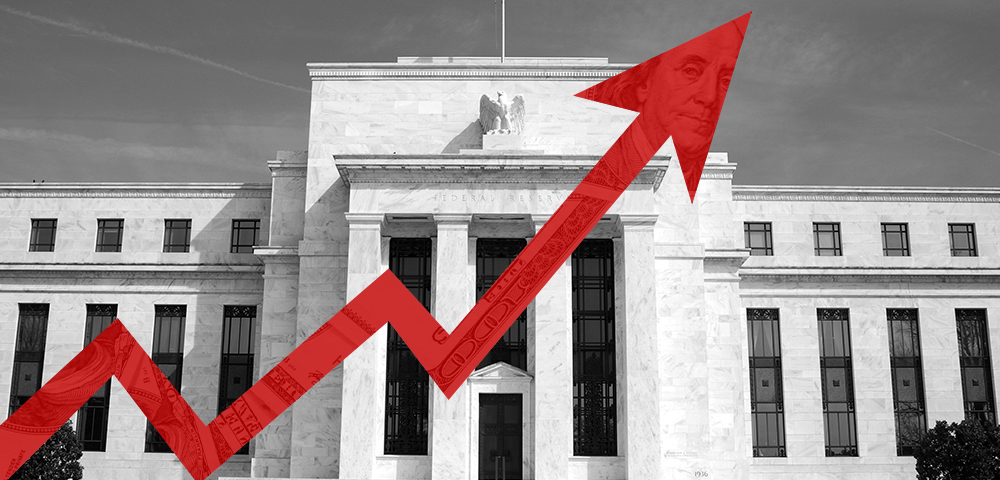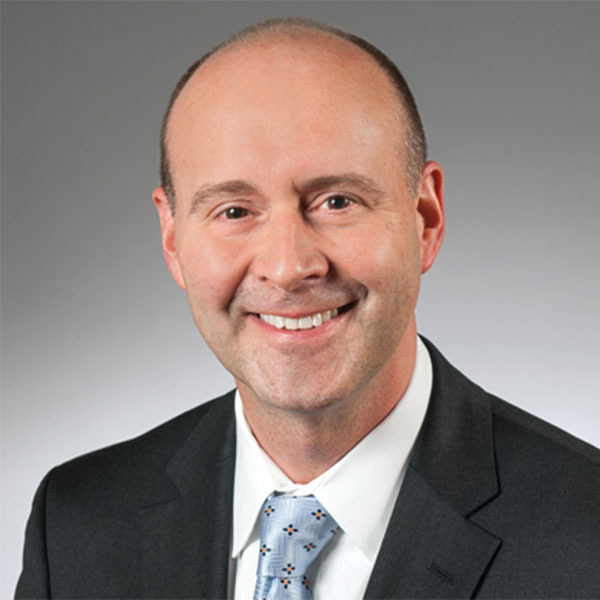Key Questions: What Will Jay Do?

The Key Wealth Institute is a team of highly experienced professionals from across wealth management, dedicated to delivering commentary and financial advice. From strategies to manage your wealth to the latest political and industry news, the Key Wealth Institute provides proactive insights to help grow your wealth.
Despite its hawkish pivot, the Federal Reserve (Fed) is falling further behind the curve and will soon begin raising interest rates despite the crisis in Ukraine.
The economic data released in January have been stunning. With revisions, payroll growth is now averaging 540,000 jobs per month over the last six months, with an average drop in the unemployment rate of more than 0.2%. At this rate, the unemployment rate will hit the Federal Reserve’s (the Fed) year-end target of 3.5% in two or three months.
The core and headline Consumer Price Indexes are now running at a whopping 6% and 7% on a year-over-year basis, respectively. Given the increase in general uncertainty stemming from Russia’s invasion of Ukraine, some guidance from the Fed on the near-term policy outlook for economic growth, inflation and interest rates would be helpful.
The markets have responded with a significant repricing of the near-term path for the Fed. About 44 basis points of hikes are priced in for March, 164 basis points for the year end 2022 and 203 basis points by September of 2023. The market pricing for this year has now converged to most Fed-watching economists’ forecasts, but the market remains below the call of 2.875% for the federal funds rate by the end of 2023. In other words, interest rates are clearly set to go up.
At this point, no economists have changed their forecasts, but most see a good case for one or two rate hikes of 50 basis points out of the gate. Fed rhetoric in recent days continues to be puzzling. Atlanta Fed President Raphael Bostic recently said the Fed would decide on a hike between 25 and 50 basis points in March based on the data. However, in the same speech, Bostic said his base case was still three hikes of 25 basis points in 2022, with risks of a fourth.
St. Louis Fed President James Bullard is now calling for a hike of 50 basis points in March and 100 basis points by July 1, but he often diverges from the rest of the Federal Open Market Committee (FOMC). The bond market responded very strongly to his comments and that may prove to be a head fake. San Francisco President Mary Daly, a dovish member of the committee, is pushing back against the idea.
A notable quote from Minneapolis Fed President Neel Kashkari this past week might give us the insight we all need into what Jerome Powell and the committee will decide at the March meeting. “My caution to my colleagues, and to myself is, let’s not overdo it,” Kashkari said. “If we raise rates aggressively, we run the risk of slamming the breaks on the economy, putting the economy into recession, which would then be crashing back down into this low inflation environment.”
It’s important to note that the Fed has offered no guidance on what kind of data would justify a move of 50 basis points.
This creates some uncertainty as to where interest rates might go. Clearly, the Fed favors gradualism over a “shock and awe” approach. Additionally, it has yet to officially admit that it’s behind the curve. If the Fed does not want to hike 50 basis points, it should be offering a real pushback, and justify why not.
And no matter how uncertain the Committee is on how to best address the growing inflation issue, what they won’t do is simply follow the markets, as that creates an unstable equilibrium in the markets, and could cause some to question their independence.
Investors should continue to be nimble, have a bias toward higher credit quality, and consider maintaining a slightly shorter duration posture to keep in front of the Fed and take advantage of higher yields once the rate hiking cycle commences.
For more information, please contact your advisor.

About George Mateyo
As Chief Investment Officer, George Mateyo is responsible for establishing sound investment strategies for private and institutional clients, expanding internal and external research capabilities, and managing the delivery of solid risk-adjusted investment performance.
In previous roles, George spent more than 15 years in investment management and investment consulting, where he acquired firsthand knowledge and insights into the capital markets and the stewardship of investment portfolios for institutional and high net-worth investors.
George received his MBA from the Weatherhead School of Management at Case Western Reserve University and completed additional studies at the London School of Economics.